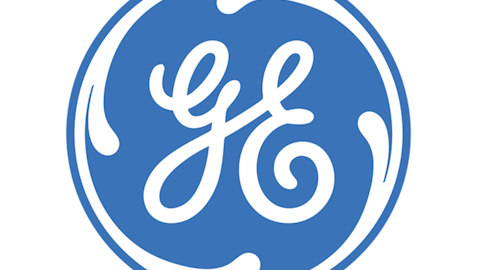Nelson Peltz‘s Trian Partners has taken a big stake in General Electric Company (NYSE:GE). According to CNBC, Trian has established a $2.5 billion position in the conglomerate and likes CEO Jeffrey Immelt’s strategy of returning GE back to its industrial and innovation roots. Peltz will not ask Immelt for wholesale changes and will not seek a board seat. Shares of General Electric are up 4.3% on the back of the news. Let’s take a closer look at the innovation giant and see if the hedge fund sentiment agrees with Trian’s “bullishness”.

But why do we track hedge fund activity? From one point of view we can argue that hedge funds are consistently underperforming when it comes to net returns over the last three years, when compared to the S&P 500. But that doesn’t mean that we should completely neglect their activity. There are various reasons behind the low hedge fund returns. Our research indicated that hedge funds’ long positions actually beat the market. In our backtests covering the 1999-2012 period hedge funds’ top small-cap stocks edged the S&P 500 index by double digits annually. The 15 most popular small-cap stock picks among hedge funds also bested passive index funds by around 60 percentage points over the 36 month period beginning from September 2012 (read more details here).
Follow General Electric Co (NYSE:GE)
Follow General Electric Co (NYSE:GE)
Receive real-time insider trading and news alerts
Nelson Peltz said:
“We invested in GE because it is undervalued and underappreciated by the market despite what we believe is a transformation that will allow its world-class industrial businesses to drive attractive shareowner returns. Our recent discussions with Jeff and his team have solidified our belief that they are highly motivated to fully deliver on GE’s transformation and share much common ground with Trian on ways to improve long-term shareowner value.”
General Electric Company (NYSE:GE) has been shrinking its financial operations to get back to its industrial and technological roots. Management has been selling off parts of GE Capital piecemeal and plans to trim around $200 billion of financial assets from its balance sheet in two years. Peltz believes management’s strategy is the correct one, and estimates the strategy will boost GE earnings per share to $2.20 by 2018.
While he has not asked for a board seat, Peltz does ask the management to continue cost reductions to get the General Electric’s operating margins to 16% and commit around $20 billion in incremental leverage to repurchase more shares. General Electric currently has plans to return more than $90 billion in capital to investors through 2018. If management does what Peltz is asking, the hedge fund believes General Electric stock could be $40-45 per share including dividends by the end of 2017.
Despite the fact that General Electric is a popular company among hedge funds, the investors that we track held only 1.40% of the company at the end of June. Of the around 730 funds from our database, 70 funds owned $3.72 billion of the company’s shares at the end of June, up from 62 funds and $3.13 billion respectively a quarter earlier. Ken Fisher‘s Fisher Asset Management upped its stake by 2% to 30.71 million shares, while Phill Gross and Robert Atchinson’s Adage Capital Management increased its position by 35% to 19.35 million shares. Moreover, Philippe Laffont’s Coatue Management established a new holding of 3.1 million shares, while Warren Buffett’s Berkshire Hathaway kept its position unchanged at 10.59 million shares.




